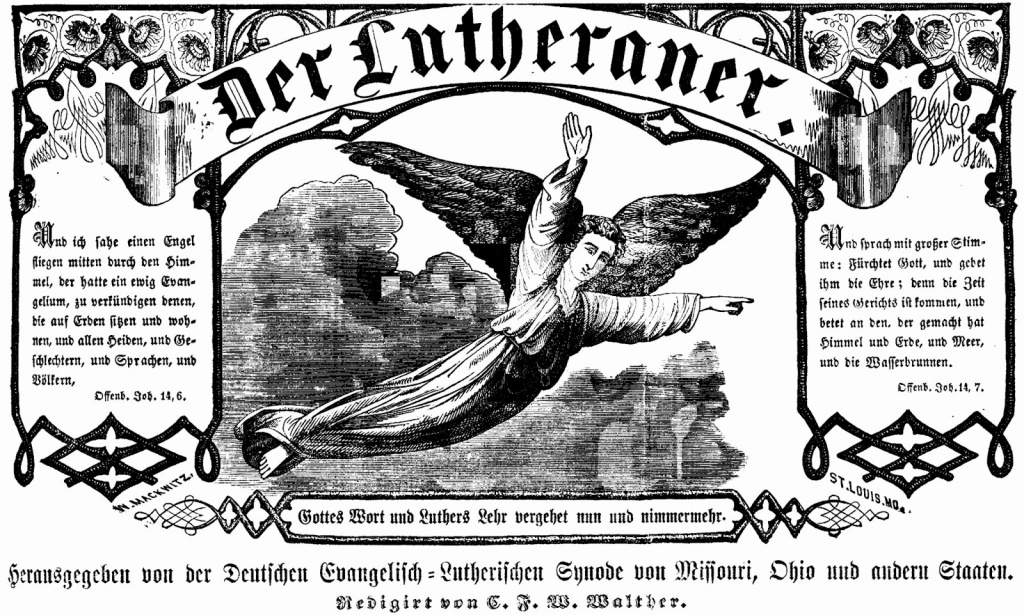In the aftermath of the Large Cataclysm, with Synod investigating itself and finding that it did nothing wrong (“the doctrinal content in each essay is fully consistent with LCMS teachings and practices … all material was in accord with Scripture and the Lutheran Confessions and the Constitution, bylaws and doctrinal statements of the Synod.… we remain firmly supportive of this volume, its contents and its usefulness for our church body.”), many so-called moderates have called on all its opponents to put the best construction on the public teaching. At the same time, these swine will never tell e.g. Harrison that, in condemning men because Antifa told him to, he is most flagrantly violating the Eighth Commandment. Nevertheless, this incident does afford the opportunity to examine what Martin Luther understood by “put the best construction on everything.” This shall be done through the use of quotations from Luther’s Large Catechism.
Who am I to judge?
Here belongs particularly the detestable, shameful vice of speaking behind a person’s back and slandering, to which the devil spurs us on, and of which there would be much to be said. For it is a common evil plague that every one prefers hearing evil to hearing good of his neighbor; and although we ourselves are so bad that we cannot suffer that any one should say anything bad about us, but every one would much rather that all the world should speak of him in terms of gold, yet we cannot bear that the best is spoken about others.
Therefore, to avoid this vice we should note that no one is allowed publicly to judge and reprove his neighbor, although he may see him sin, unless he have a command to judge and to reprove.
Now, who other than Antichrist would dare say that to judge doctrine belongs not to all Christians in common, but to a special, highly qualified class of Christians? For Christ gives this right to all, forbidding them to relinquish it, when He says: “Beware of false prophets,” which command would be pointless were they not to judge who the false prophets are, and avoid them (see also Rom. 16). The saying of Paul: “All things are yours” (1 Cor. 3) is also rightly applied to the right (and implicit duty) to judge doctrine.
Can it be proven?
But you say: Shall I not say it if it be the truth? Answer: Why do you not make accusation to regular judges? Ah, I cannot prove it publicly, and hence I might be silenced and turned away in a harsh manner [incur the penalty of a false accusation]. “Ah, indeed, do you smell the roast?” If you do not trust yourself to stand before the proper authorities and to make answer, then hold your tongue. But if you know it, know it for yourself and not for another. For if you tell it to others, although it be true, you will appear as a liar, because you cannot prove it, and you are, besides, acting like a knave. For we ought never to deprive any one of his honor or good name unless it be first taken away from him publicly.
False witness, then, is everything which cannot be properly proved.
Therefore, what is not manifest upon sufficient evidence no one shall make public or declare for truth; and, in short, whatever is secret should be allowed to remain secret, or, at any rate, should be secretly reproved, as we shall hear.…
All this has been said regarding secret sins. But where the sin is quite public so that the judge and everybody know it, you can without any sin avoid him and let him go, because he has brought himself into disgrace, and you may also publicly testify concerning him. For when a matter is public in the light of day, there can be no slandering or false judging or testifying; as, when we now reprove the pope with his doctrine, which is publicly set forth in books and proclaimed in all the world. For where the sin is public, the reproof also must be public, that every one may learn to guard against it.
With this, our public rejection of the doctrine contained in the Teufelskatechismus — as it has been proven from the essays themselves to be — is established as not contradicting the command to “put the best construction on everything,” which does not apply regarding public sins.





